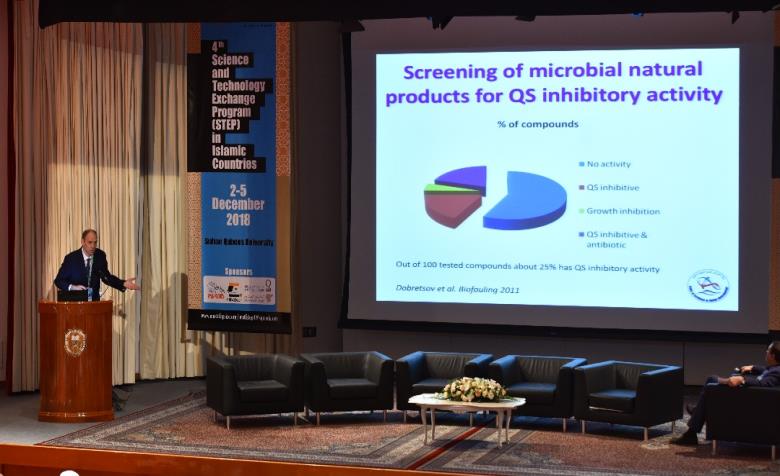Scientists Explore ‘More Efficient’ Antibiotics in the Oceans


A lot is going on at the 4th Science and Technology Exchange Program (STEP) in Islamic Countries in Oman. Health experts attending the event held a panel discussion at Sultan Qaboos University, where challenges and solutions regarding antibiotic resistance were extensively discussed.
MSTF Media reports:
Director of Center of Excellence in Marine Biotechnology at Sultan Qaboos University, Sergey Dobretsov, touched on solutions that can be provided by marine biotechnology and marine natural products.
According to the World Health Organization (WHO), antibiotic resistance happens when bacteria change and become resistant to the antibiotics used to treat the infections they cause. It could be due to over prescribing of antibiotics, patients not finishing their treatment, over-use of antibiotics in livestock and fish farming, poor infection control in hospitals and clinics, lack of hygiene and poor sanitation and lack of new antibiotics being developed.
The economic cost of antibiotic resistance has been recorded as 1.5 billion Euros per year in European Union and 20 billion dollars in the United States.
“Although there is limited information about the extent of use of antibiotics and resistance, the data available suggested that the resistance is increasing,” explained Dobretsov.
Marine biotechnology might be provide answers according to Dobretsov, “Marine biotechnology is the industrial, medical or environmental application of biological resources from the oceans. Oceans cover 70% of our planet and they have high biological diversity. Only 11,000 compounds have been isolated compared to 155,000 terrestrial compounds.”
Looking at antimicrobial potential of marine organisms, Dobretsov said, “Sponges have the highest potential. Discovery of Marine Natural Products (MNP) against drug resistant pathogens has increased since 2001.”
Dobretsov’s focus was on novel antibiotics: bacterial quorum sensing and cell to cell communication – the bacterial language.
“And the steps are signal synthesized, signal diffuses, signal binds to receptor, receptor binds to promoter and expression of target genes and the inhibition of bacterial language. Red algae for example can produce chemical noise and deactivate the bacteria communication signals,” explained Dobretsov by pointing out MNP can be used to fight cancer.
The challenges associated with MNP are the high cost and long duration as well as the source that is who is producing the host or the microbial symbionts. There’s another challenge; “the supply may not be sufficient” said the SQU professor.
“The solutions are aquaculture, isolation of microbes and their fermentation, synthesis of natural products and cloning,” explained Dobretsov.
The 4th STEP forum revolves around three major issues of the 21st century: Water, Energy and Health. During the 4-day event which is organized by Mustafa Science and Technology Foundation and the SQU in Muscat, dozens of top scientists from Islamic countries have convened to exchange views to find practical solutions to these issues.